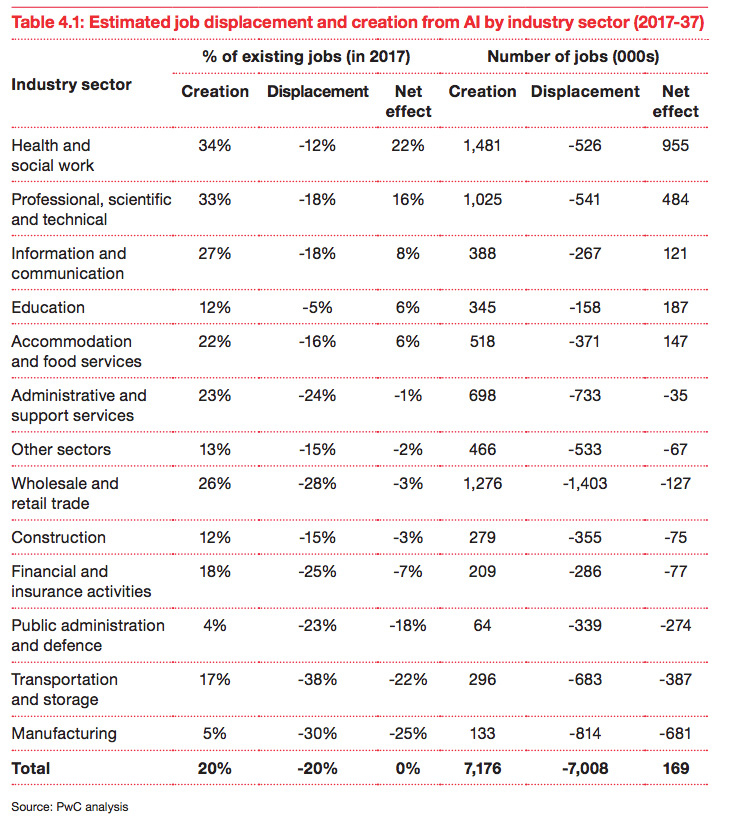
Artificial intelligence will create as many jobs as it destroys, according to a PwC analysis
- Billionaires including Bill Gates and Elon Musk have argued that robots will basically replace humans at work.
- People are now worried about vast swathes of unemployment where a few wealthy people own the robots and the rest survive on government handouts.
- But a new PwC forecast suggests artificial intelligence will create as many jobs as it destroys.
- AI will disproportionately affect certain sectors negatively such as manufacturing and transport, but will create jobs in healthcare and education.
The likes of Elon Musk and Bill Gates have made repeated doomsday warnings about artificial intelligence becoming more skilled at humans at just about everything.
So it’s little surprise that people are scared about a post-AI future where a mostly jobless population subsists on universal basic income while rich people own and operate all the robots.
But a new report from consultancy firm PwC joins a growing chorus of more cautious economic forecasts that suggest the future is brighter than we might think.
Looking at the UK, PwC found that it’s true that robots will replace some jobs, especially in sectors like transport or manufacturing. AI will “displace” 38% of transport jobs, and 30% of manufacturing jobs, according to the report.
But other sectors will actually see greater job creation thanks to AI, evening out the balance. Only 12% of jobs in healthcare will be displaced by AI, while 34% will be created, PwC predicts.
The upshot is that AI will create as many jobs as it destroys, when evened out across different sectors.
The report said: “Our estimates suggest that AI will not lead to technological unemployment as we project that it will displace around 20% of existing UK jobs by 2037, but create a similar number.
“In absolute terms, around 7 million existing jobs are projected to be displaced, but around 7.2 million are projected to be created, giving a net jobs boost of around 0.2 million.”
The OECD was even more conservative about job displacement in a report earlier this year. The economic organisation concluded that just 14% of jobs in its member countries were at risk of automation.
Both PwC and the OECD suggested that sectors that would benefit the most from AI, or are at least risk from automation, are those that involve complex, specialised tasks and people. This includes:
- Education
- Scientific and technical work
- Information and communication
- Accommodation and food services
Sectors that will do badly include those that involve repetitive, administrative tasks such as:
- Finance and insurance
- Retail
- Construction
- Public administration
- Construction
- Transport
- Manufacturing
Here are the full UK numbers from PwC showing AI job creation and displacement in different sectors:

